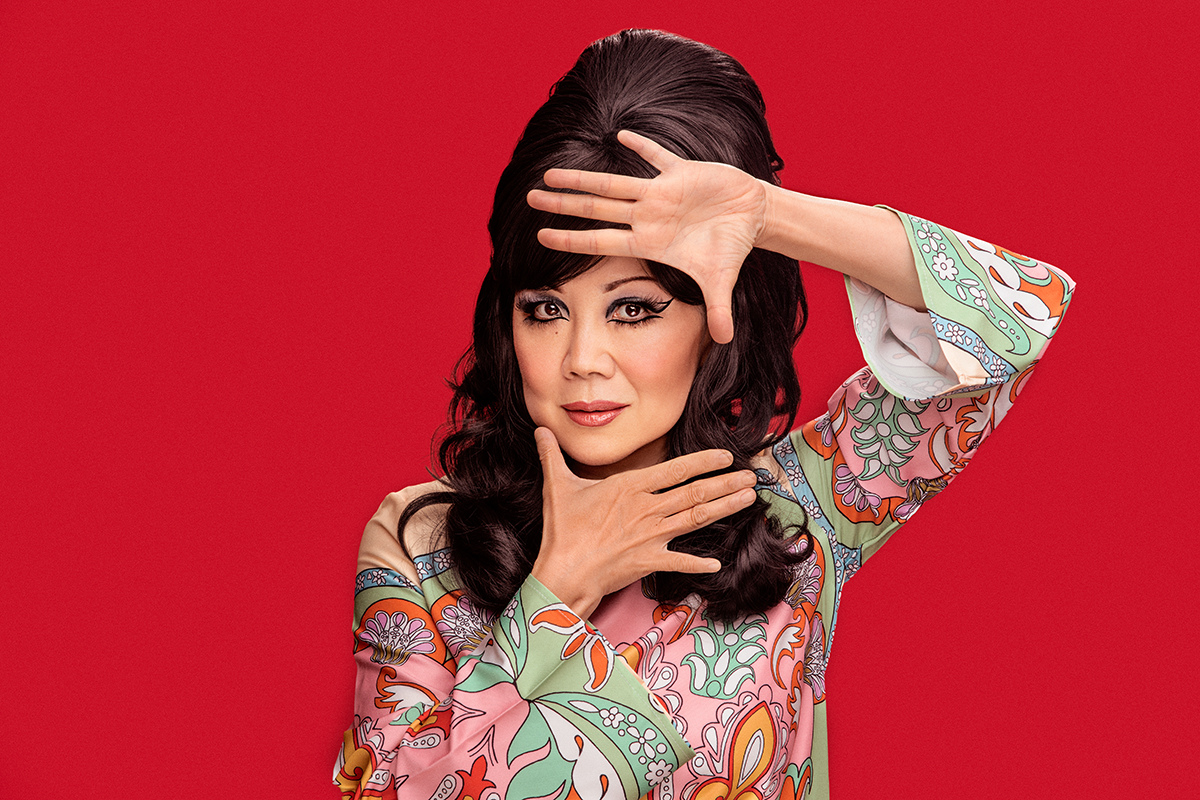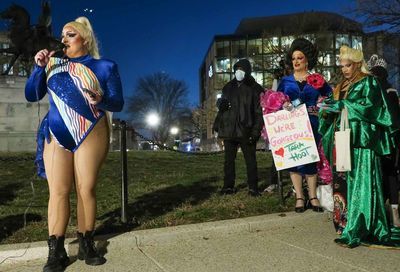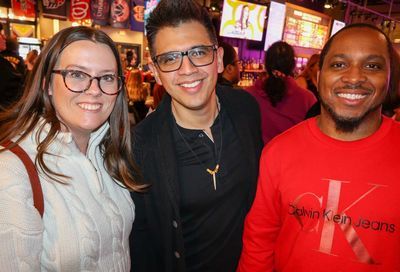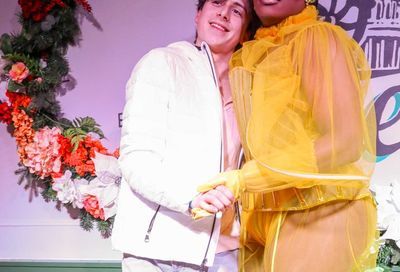Lizzbian Power
Comic, pundit and progressive, Lizz Winstead talks about her politics, her Catholic roots and Michele Bachmann's Minnesotan congeniality

Liz Winstead
(Photo by Mindy Tucker)
WINSTEAD: Not to mention, when you make the statement that two people of the same sex who live in a state you’re never going to, who are just trying to get married, have some kids and go to PTA meetings have the power to destroy your marriage, maybe you shouldn’t get married. Maybe you are so unstable that we need to legislate against you, because that seems crazy.
MW: Like Franks, Rep. Jason Chaffetz (R-Utah) tried to meddle in D.C., but with marriage equality. But I wonder, if D.C. was less like D.C. and more like, say, Colorado Springs, might the Congressional Progressive Caucus be just as tempted to meddle?
WINSTEAD: If D.C. was more like Colorado Springs, it would be a state. [Laughs.] But I don’t think so. I don’t see the Progressive Caucus creeping into places to begin with. That’s the difference. Progressives seem to me to be people who are not trying to stop things from happening, but create the fullest lives they can for people. They want more health care. They want more freedom for people to marry. They want women to have more access to health care, things like that.
MW: In your book, you wrote about your first visit to Uncle Sam’s nightclub in Minneapolis during high school, ”It was the beginning of a lifetime of gay bondage.” You already had a sort of outsider status growing up, the gangly one. But did having gay friends help form your perspectives?
WINSTEAD: The traditional conventions used to prepare you for life didn’t appeal to me. In fact, bored me. Whether it was playing with dolls or looking at appliances as toys, I wasn’t fooled.
I call it ”the anvil rule.” I can’t lift an anvil. So, if I said, ”I’ll lift that anvil! Why won’t you let me lift the anvil?” And people said, ”Because you can’t,” and I was defiant about it, that would be weird. But if I chose something that just wasn’t the norm, and there was no physical reason why I shouldn’t be able to do it and I wouldn’t harm myself or others by doing it, if people didn’t let me do it and gave me a lame reason, it really set me off. As I got older and saw friends of color and there were parents who were like, ”Don’t play with them,” or you read history and learned they couldn’t do something because of the color of their skin, that didn’t pass the anvil test. When gay kids wanted to go out with other gay kids and it was like, ”No, you can’t,” and there was no good reason, it all just fell in line with ridiculous people trying to prevent people from becoming their best selves. Whenever I saw a group of people – whether it was women, or myself, or gay friends or people of color – being prevented from doing something, it just made me mad. It was a natural thing for me to bond with the struggles of other people when they were being held back for no good reason at all.
None of it was calculated. It wasn’t like I studied things and became more and more annoyed. It was literally just stumbling across things through my own struggles of trying to make sense of the world and trying to have a good time in it and be fulfilled, to watching my struggles play out in different people’s lives in different ways and seeing them be held back, and being annoyed by all of it. Really, what it did more than anything else was reflect a narrow-minded stupidity in people. They were the power structure. And now, other people just as talented as them – or more talented sometimes – wanted to do what they did. That made them have to defend themselves and prove that they were still good enough to do it. When you do that with people, they don’t like it much. They sometimes get annoyed. [Laughs.]
MW: Because I’ve got women in my life proving to me constantly that women’s sexuality is more fluid than men’s, I want to ask whether you’ve ever had any sort of romantic relationship with a woman.
WINSTEAD: In high school, here and there, there were little dalliances. But, no, I never really had any relationships with women. I don’t know why. Maybe because I’m just not attracted to women for the most part. If I did, I would totally say. I wouldn’t care. Men are very ”heels in” about that. ”No. I haven’t. Of course not.” I probably would’ve written about it. [Laughs.]
But I do feel like when women are bisexual, they just are. There’s no transitioning of, ”I’m coming to a place where I’m comfortable saying I’m a lesbian,” or whatever. I just trust that women are bisexual. Where with men, I kind of feel like almost every single time men tell me they’re bisexual, they end up in a same-sex partnership.
It seems very double-standard-y of me. Of course, I have no training at all, nor should I ever be listened to. [Laughs.] This is pure observation.
Support Metro Weekly’s Journalism
These are challenging times for news organizations. And yet it’s crucial we stay active and provide vital resources and information to both our local readers and the world. So won’t you please take a moment and consider supporting Metro Weekly with a membership? For as little as $5 a month, you can help ensure Metro Weekly magazine and MetroWeekly.com remain free, viable resources as we provide the best, most diverse, culturally-resonant LGBTQ coverage in both the D.C. region and around the world. Memberships come with exclusive perks and discounts, your own personal digital delivery of each week’s magazine (and an archive), access to our Member's Lounge when it launches this fall, and exclusive members-only items like Metro Weekly Membership Mugs and Tote Bags! Check out all our membership levels here and please join us today!




















